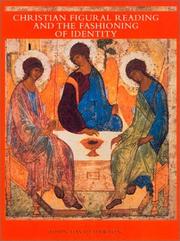| Listing 1 - 3 of 3 |
Sort by
|
Book
ISBN: 1283277603 9786613277602 0520948378 9780520948372 9781283277600 9780520268487 0520268482 6613277606 Year: 2011 Publisher: Berkeley
Abstract | Keywords | Export | Availability | Bookmark
 Loading...
Loading...Choose an application
- Reference Manager
- EndNote
- RefWorks (Direct export to RefWorks)
Where does the notion of free will come from? How and when did it develop, and what did that development involve? In Michael Frede's radically new account of the history of this idea, the notion of a free will emerged from powerful assumptions about the relation between divine providence, correctness of individual choice, and self-enslavement due to incorrect choice. Anchoring his discussion in Stoicism, Frede begins with Aristotle--who, he argues, had no notion of a free will--and ends with Augustine. Frede shows that Augustine, far from originating the idea (as is often claimed), derived most of his thinking about it from the Stoicism developed by Epictetus.
Free will and determinism --- Philosophy, Ancient. --- History. --- ancient greeks. --- aristotelian philosophy. --- aristotle. --- augustine. --- christian thinkers. --- christianity. --- divine providence. --- divine will. --- divinity. --- epictetus. --- epistemology. --- free will. --- greek philosophy. --- individual choice. --- metaphysics. --- nonfiction. --- peripatetic. --- philosophy. --- plato. --- providence. --- rational choice. --- rational self interest. --- religion. --- self control. --- self enslavement. --- spirituality. --- stoic philosophy. --- stoicism. --- theory of assent. --- volition. --- will.

ISBN: 1282356550 052092598X 9786612356551 1597345385 9780520925984 0585468796 9780585468792 9780520226302 0520226305 0520226305 Year: 2001 Publisher: Berkeley University of California Press
Abstract | Keywords | Export | Availability | Bookmark
 Loading...
Loading...Choose an application
- Reference Manager
- EndNote
- RefWorks (Direct export to RefWorks)
This book makes an illuminating contribution to one of Christianity's central problems: the understanding and interpretation of scripture, and more specifically, the relationship between the Old Testament and the New. John David Dawson analyzes the practice and theory of "figural" reading in the Christian tradition of Biblical interpretation by looking at writings of Jewish and Christian thinkers, both ancient and modern, who have reflected on that form of traditional Christian Biblical interpretation. Dawson argues Christian interpretation of Hebrew scripture originally was, and should be, aimed at not reducing the Jewish meaning or replacing it but rather at building on it or carrying on from it. Dawson closely examines the work of three prominent twentieth-century thinkers who have offered influential variants of figural reading: Biblical scholar Daniel Boyarin, philologist and literary historian Erich Auerbach, and Christian theologian Hans Frei. Contrasting the interpretive programs of these modern thinkers to that of Origen of Alexandria, Dawson proposes that Origen exemplifies a kind of Christian reading that can respect Christianity's link to Judaism while also respecting the independent religious identity of Jews. Through a fresh study of Origen's allegorical interpretation, this book challenges the common charge that Christian non-literal reading of scripture necessarily undermines the literal meaning of the text. This highly interdisciplinary work will advance debates about different methods of interpretation and about different types of textual meaning that are relevant for many disciplines, including ancient Christianity, Jewish and Christian thought, literary theory, religious studies, and classical studies.
Christianity and other religions --- Judaism --- Judaism. --- Relations --- Christianity. --- Bible --- Criticism, interpretation, etc. --- Reading. --- allegory. --- biblical interpretation. --- biblical scholar. --- christian thinkers. --- christian tradition. --- christianity. --- church doctrine. --- church fathers. --- classical studies. --- covenant. --- daniel boyarin. --- erich auerbach. --- figural reading. --- hans frei. --- hebrew scripture. --- hermeneutics. --- jewish thinkers. --- judaism. --- new testament. --- nonfiction. --- old testament. --- religion. --- religious identity. --- religious studies. --- scripture. --- spirituality. --- theology. --- torah.
Book
ISBN: 9783110374308 3110374307 9783110376043 9783110387254 3110376040 9783110376050 3110376059 3110387255 Year: 2015 Publisher: Berlin Boston
Abstract | Keywords | Export | Availability | Bookmark
 Loading...
Loading...Choose an application
- Reference Manager
- EndNote
- RefWorks (Direct export to RefWorks)
Although Hans Urs von Balthasar's earliest publication is from 1925, and although he was a mature forty years old in 1945, there is a deficiency in the secondary literature regarding his early literature, its historical backgrounds and non-theological sources. In this study Balthasar is presented in relation to the various contexts in which he was both drawing upon and responding to from the 1920's to the 1940's. The major contexts analyzed here are the broad central European Germanophone cultural context, the Germanophone Catholic cultural context, the German studies context, the French Catholic renewal literature and theology of the early 20th-century, the popular journal Stimmen der Zeit, Neo-Scholasticism, early 20th-century French Catholic culture, Swiss fascism, National Socialist literature, the Renouveau Catholique, the George-Kreis and many others. Balthasar's early anti-Semitism and some of the problematic aspects of his early work are also addressed in this study. His understanding of the modern age, his relationships with some key intellectual figures and his later reflections on his early work are also introduced. The book offers a comprehensive study of Balthasar's early intellectual development.
2 VON BALTHASAR, HANS URS --- 2 VON BALTHASAR, HANS URS Godsdienst. Theologie--VON BALTHASAR, HANS URS --- Godsdienst. Theologie--VON BALTHASAR, HANS URS --- von Balthasar, Hans Urs --- Balthasar, Hans Urs von --- Balthasar, H. U. von --- Von Balthasar, Hans Urs --- Theology and Religious Studies --- Modern Christian Thinkers and Philosophers of Religion --- Other 20th-Century Thinkers. --- Systematic Theology and Philosophy of Religion --- Systematic Theology. --- Balthasar, Hans Urs von, --- Electronic books. --- RELIGION / Christianity / Catholic. --- Books in machine-readable form --- Digital books --- E-books --- Ebooks --- Online books --- Books --- Electronic publications --- European Catholicism. --- German language theology. --- Hans Urs von Balthasar.
| Listing 1 - 3 of 3 |
Sort by
|

 Search
Search Feedback
Feedback About UniCat
About UniCat  Help
Help News
News